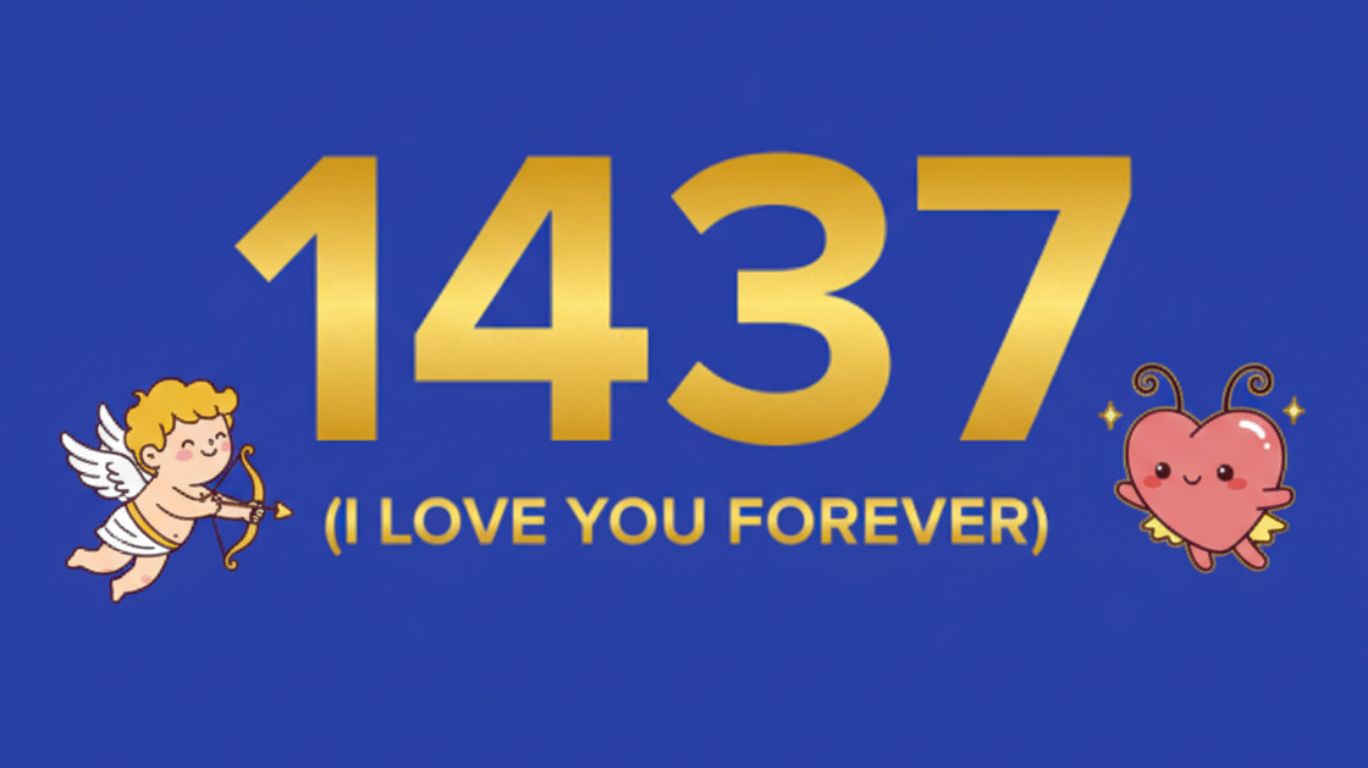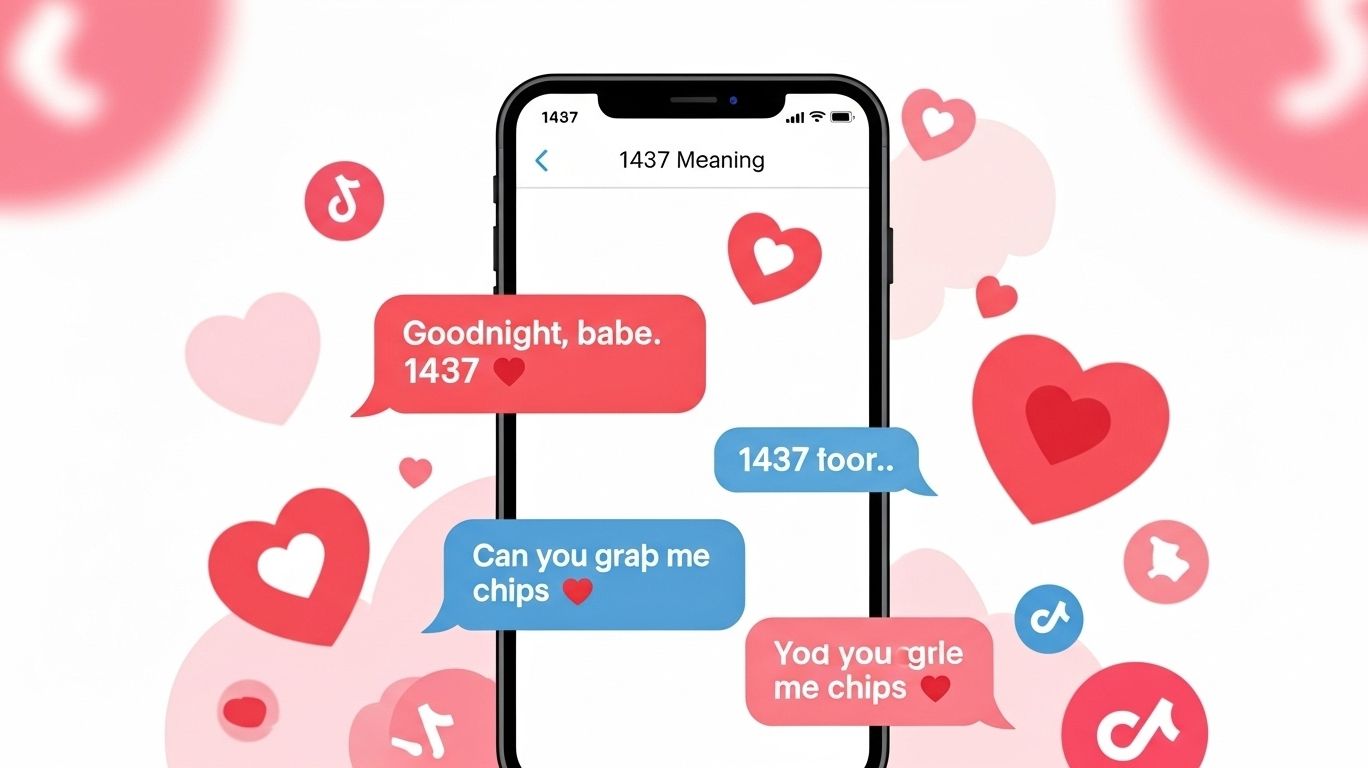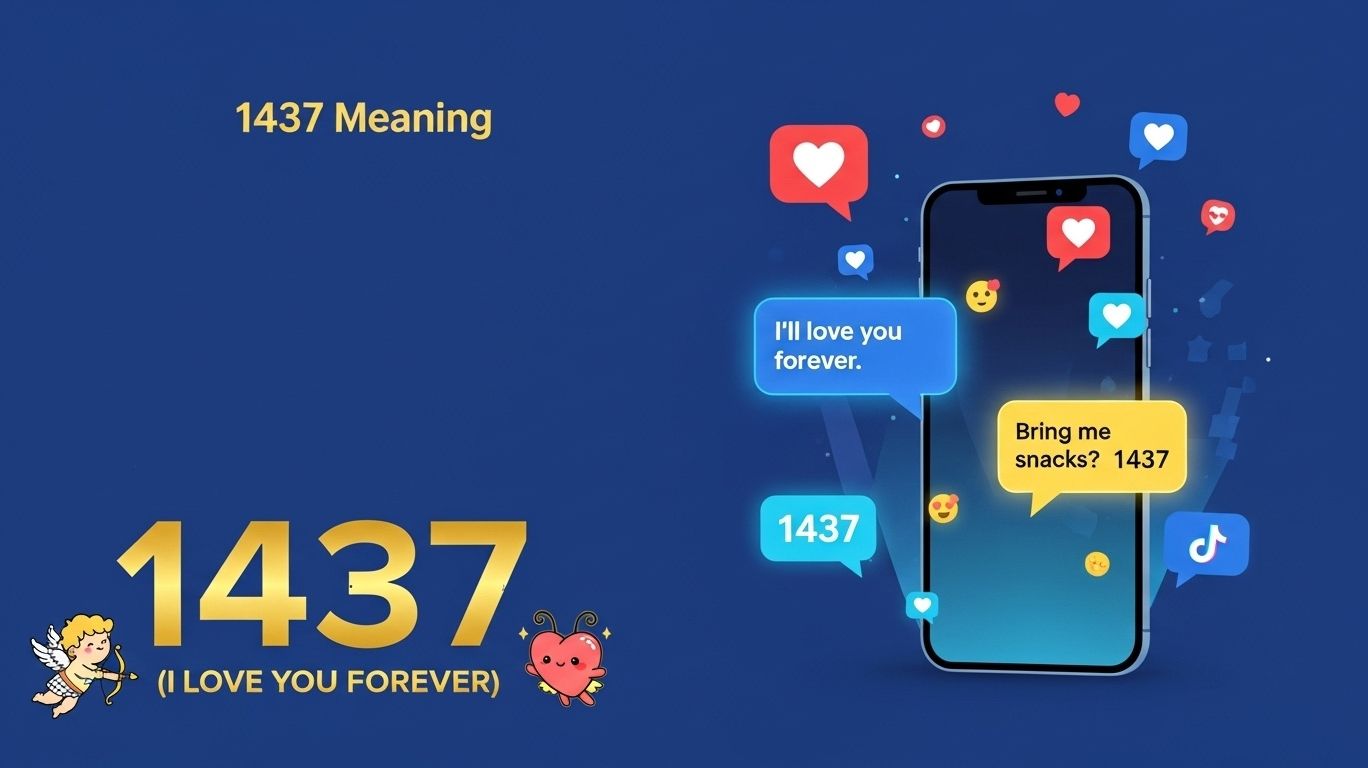
In the age of social media and instant messaging, love isn’t just whispered or written in letters anymore—it’s texted, tweeted, and even coded in numbers. One of the most popular “love codes” floating around TikTok, Instagram, and messaging apps today is 1437.
At first glance, it might look like a random set of digits, but for those in the know, the 1437 meaning carries a heartfelt message: “I Love You Forever.”
Whether you’ve seen it in captions, DMs, or text messages and comments, this little numeronym has become a favorite shorthand for expressing affection in a fast, playful, and digital way. But what does it mean, how is it used, and why do people love using numbers to show emotions? Let’s break it down.
The number 1437 isn’t random—it’s a numeronym, a word or phrase shortened into numbers to represent its corresponding word. Here’s the breakdown:
Put together, you get: “I Love You Forever,” which consists of seven letters.
While the grammatically correct phrase would be “I will love you forever,” the shorthand has taken on a life of its own, representing deep feelings between people. It’s short, catchy, and instantly recognizable to anyone familiar with text-speak culture.

The beauty of 1437 is its versatility. People use it in different ways depending on context:
This dual purpose—both serious and playful—makes 1437 a unique and flexible expression in digital conversations, including texts and comments.
Numeronyms like 1437 aren’t just about convenience; they reflect how internet slang and language develop in the digital era. Here are the main reasons people love using them:
Typing “1437” is faster than spelling out “I love you forever.” In fast-paced online chats, brevity is key.
Numeronyms can act as secret codes; for example, the older love code 143 consists of three letters. At first, only those “in the know” understand the meaning, making it feel private or exclusive.
These numbers become personal codes for couples, friends, and even family. Sharing an “1437” feels special—like an inside joke that strengthens bonds.
For some, sending numbers like 1437 feels less intimidating than spelling out the full phrase to express love. It’s affectionate without being overly formal.
1437 isn’t the only “love code” out there. Numeronyms have a long history in digital (and even pre-digital) romance.
Here are some popular variations:
These creative shortcuts show how universal the urge to code love into numbers is. From English numeronyms to Chinese text-speak, numbers bridge cultural and linguistic gaps.
While they feel very modern, numeronyms aren’t new. Lovers have been using secret number codes long before texting apps existed. Some even wrote them on letters and envelopes to conceal romantic messages from prying eyes.
Over time, numeronyms develop in tech and online culture too:
1437 fits perfectly into this tradition, blending efficiency, creativity, and emotional expression.

If you want to express affection in a fun, digital-native way, especially through videos or text, 1437 is great. It’s recognizable, easy to type, and instantly conveys deep emotion.
That said, it’s most effective when used in the right context, keeping up with current trends :
Remember: while 1437 is cute and convenient, nothing replaces heartfelt words when expressing love. Sometimes, spelling it out still means the most. ❤️
Language is always enhancing, and 1437 proves that love finds new ways to express itself—even in numbers. Whether you drop it in a romantic message, a TikTok caption, or a funny text exchange, 1437 is a simple yet powerful way to say “I Love You Forever.”
So the next time someone sends you 1437, you’ll know it’s more than just numbers—a promise of affection, playfulness, or devotion.
👉 Want to go deeper into online slang and digital communication? Check out our blog on internet slang meanings for more guides like this!
The full meaning of 1437 means “I Love You Forever.” It’s a numeronym where each digit represents the number of letters in the phrase.
Not exactly. 143 = “I Love You,” while 1437 = “I Love You Forever,” which consists of seven letters. The “7” adds a sense of eternity or long-term devotion.
It’s especially popular among teenagers and young adults on TikTok, Instagram, and messaging apps, though anyone can use it.
Yes! While it’s usually romantic, it can also be used jokingly between friends or family members to add humor or sweetness to a conversation.
It develops from older love codes like 143, which is composed of three letters, and has been used in handwritten notes since the early days of texting and even before.
1437 is more casual and playful, making it great for digital slang compared to other four-letter expressions of affection. But less common in serious or formal expressions of love.
